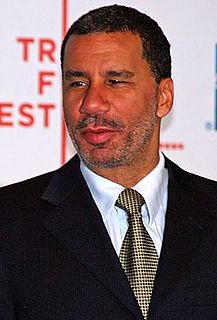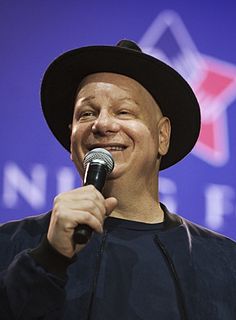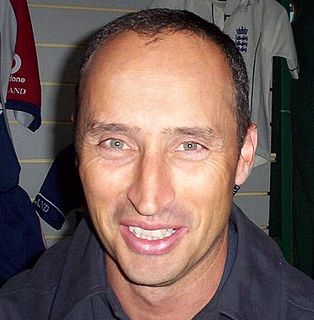A Quote by David Paterson
I have had this desire my whole life to prove people wrong, to show them I could do things they didn't think I could do.
Related Quotes
There was a whole language that I could never make function for myself; it revolved around words like 'tortured', 'struggle'. 'pain'.. .I could never see these qualities in paint - I could see them in life and art that illustrates life. But I could not see such conflicts in the materials and I knew that it had to be in the attitude of the painter.
Certainly there are things worth believing. I believe in the brotherhood of man and the uniqueness of the individual. But if you ask me to prove what I believe, I can't. You know them to be true but you could spend a whole lifetime without being able to prove them. The mind can proceed only so far upon what it knows and can prove. There comes a point where the mind takes a leap—call it intuition or what you will—and comes out upon a higher plane of knowledge, but can never prove how it got there. All great discoveries have involved such a leap.
He believed that he must, that he could and would recover the good things, the happy things, the easy tranquil things of life. He had made mistakes, but he could overlook these. He had been a fool, but that could be forgiven. The time wasted--must be relinquished. What else could one do about it? Things were too complex, but they might be reduced to simplicity again. Recovery was possible.
You could analyze me and say that my father leaving and being absent was a motivator for early ambition, trying to prove myself to this apparition who had vanished. You could argue that me being a mixed kid in a place where there weren't a lot of black kids around might have spurred on my ambitions. You could go through a whole litany of things that sparked me wanting to do something important.
I said that I thought the secret of life was obvious: be here now, love as if your whole life depended on it, find your life's work, and try to get hold of a giant panda. If you had a giant panda in your back yard, anything could go wrong — someone could die, or stop loving you, or you could get sick — and if you could look outside and see this adorable, ridiculous, boffo panda, you'd start to laugh; you'd be so filled with thankfulness and amusement that everything would be O.K. again.
The whole decision to do my show was that I was trying to "true up" my work life and my personal life and I wanted the principles in both of them to be the same. And the only way that I could think of to do that was to make a show about exploring cultures through food that demonstrated those principles with every story that we told.
The Greek tragedies and comedies are like a roadmap to all the ways in which trying to live this rich, full life can go wrong. You could get into a war. You could find that you have members of your family on the wrong side of a political crisis. You could be raped. You could find that your child has gone crazy because of some horrible experience she's had.


































